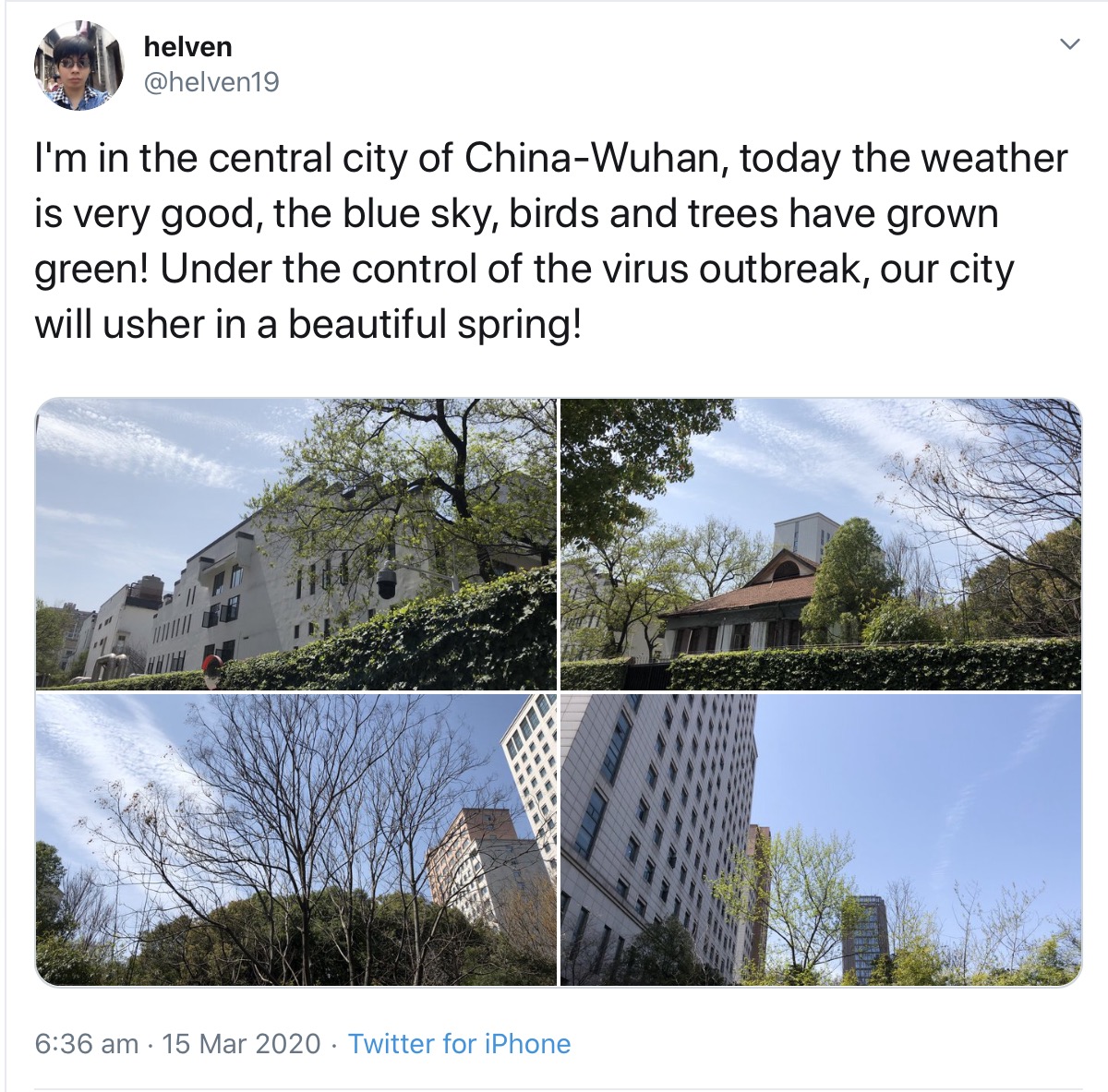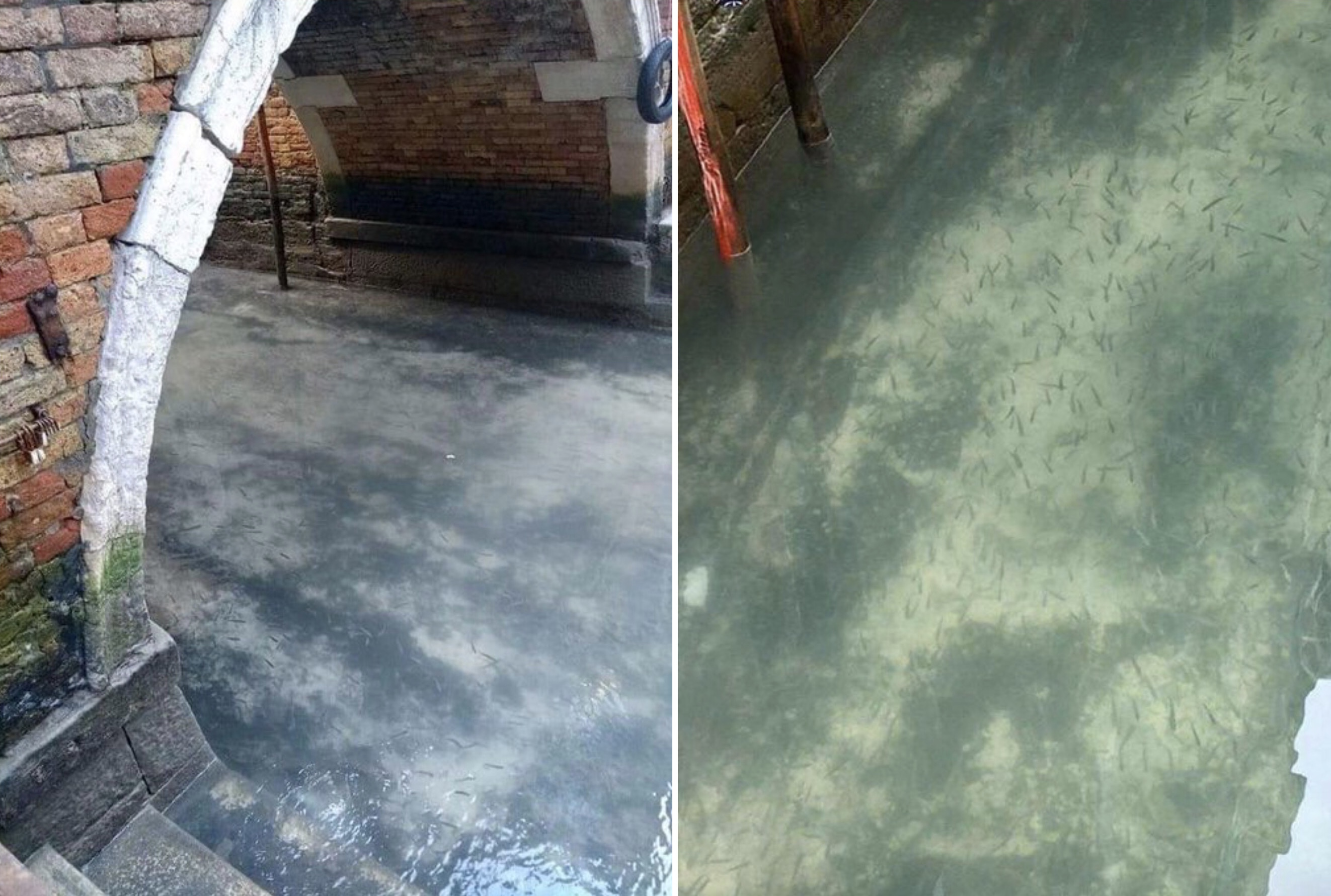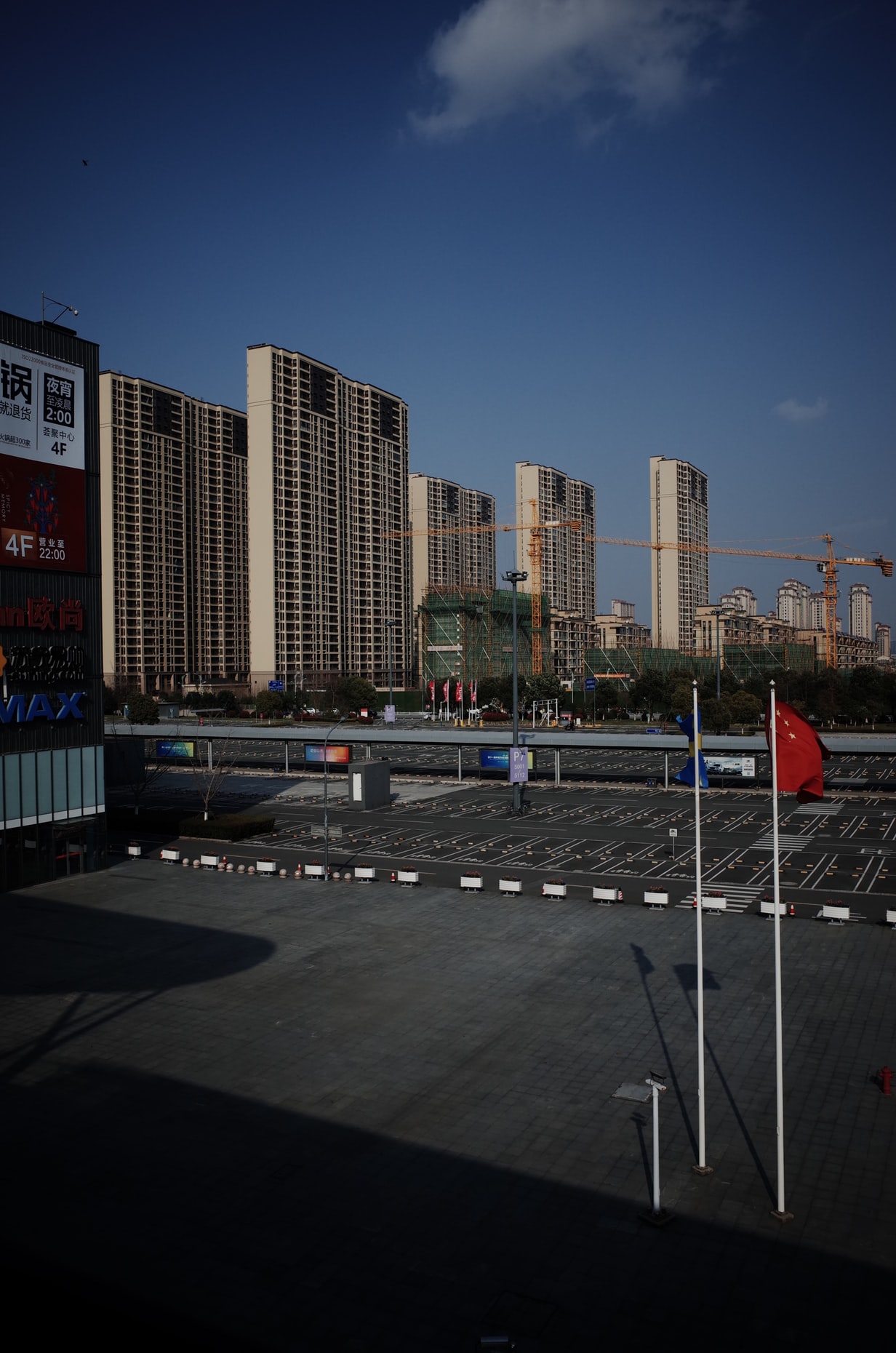
- Inspiring People -
- 6mins -
- 436 views
A silver lining amid the pandemic: fresh air and blue skies break out around the Planet!
With global economic activity ramping down as a result of the coronavirus pandemic, a variety of gases related to energy and transport have been reduced resulting in a range of benefits for the planet — including fresh air!
Coronavirus is stopping climate change in its tracks
While the coronavirus (COVID-19) is taking its toll on human populations, the ensuing lockdown and self-quarantine measures have have caused a dramatic reduction in the release of an array of noxious chemicals into the atmosphere, resulting in a range of unforeseen benefits for the planet—including fresh air—and though coronavirus has tragically claimed many lives, there are even some suggestions than many more have been saved by the improved air quality. Whether the current trend is sustainable after the crisis is a complex issue with many variables, and a definitive answer remains to be seen. However, people power could have a huge impact on what direction we take in future.

Worldwide extreme public health measures causing natural environment to flourish
We reported a few days ago that with so few tourists in Venice and an enforced lockdown across the city, boat traffic and pollution has eased, clearing the water and also improving air quality; and other parts of the country were seeing nature reclaiming the deserted public spaces… and it’s not just Italy.
All around the world, the extreme public health measures are causing the natural environment to flourish.
As is established, China, the world’s biggest polluter, was ground zero for the coronavirus outbreak. Stringent self-isolation measures were introduced there last month, and as a result there were fewer vehicles on the roads and a major slowdown in manufacturing and industrial emissions.
The world’s first case of COVID-19 was reported in Wuhan in January, which has since become the first Chinese city to experience a noticeable improvement in air quality.
Locals are celebrating this rather than the thick smog that normally blankets the city, with some residents tweeting photos of blue skies that have emerged overhead.
This improvement is confirmed by NASA satellite imagery, which shows it’s not just in Wuhan that things are getting better, but the entire country.
All over China, the average density of tropospheric nitrogen dioxide – a toxic chemical that reduces immunity – has dropped significantly below normal levels. “This is the first time I have seen such a dramatic drop-off over such a wide area for a specific event," said NASA air quality researcher Fei Liu.
Source: NewsHub.co.nz

Reduced traffic on New York streets lowers carbon monoxide by 50%
Researchers in New York told the BBC their early results showed carbon monoxide mainly from cars had been reduced by nearly 50% compared with last year.
Traffic levels in the city were estimated to be down 35% compared with a year ago. Emissions of carbon monoxide, mainly due to cars and trucks, have fallen by around 50% for a couple of days this week according to researchers at Columbia University.
They have also found that there was a 5-10% drop in CO2 over New York and a solid drop in methane as well.
Although there are a number of caveats to these findings, they echo the environmental impacts connected to the virus outbreaks in China and in Italy.
Source: BBC

They have also found that there was a 5-10% drop in CO2 over New York and a solid drop in methane as well. Source: Pinterest
Tens of thousands of lives saved – believes Stanford University expert
While coronavirus has tragically claimed 3237 Chinese lives, there are some suggestions many more have been saved by the improved air quality.
One Stanford University expert, Marshall Burke, believes between 50,000 and 75,000 premature deaths have been prevented already, simply due to cleaner air across the country.
"The reductions in air pollution in China caused by this economic disruption likely saved 20 times more lives in China than have currently been lost due to infection with the virus in that country," he wrote on online scientific research platform G-Feed.
However, Dr. Burke says he doesn’t want to insinuate that COVID-19 is a good thing for humanity overall.
"Does this mean pandemics are good for health? No," he said. "Instead, it means that the way our economies operate absent pandemics has massive hidden health costs, and it takes a pandemic to help see that."
Source: NewsHub

Is positive environmental change sustainable?
While many are noting the positive environmental impacts that have followed the spread of COVID-19, the International Energy Agency (IEA) isn’t hopeful it’ll have a lasting impact. The global energy watchdog says reduced air travel and less industrial pollution are temporary, and likely to bounce back quickly once the threat of coronavirus passes.
Meanwhile, Greenpeace warns it’s likely China, too, will do little to combat climate change long-term.
It says China is likely to focus all its attention on reviving the economy as quickly as possible when the coronavirus crisis eases – in turn putting a phenomenon dubbed "revenge pollution" into action.
"There might be a round of economic stimulus which would inject cheap credits to heavy industries in China," Li Shuo, senior climate policy advisor for Greenpeace East Asia, told CNN.
"As a result of that, we might see increasing pollutants and also carbon emissions in the second half of this year.” Li then added.“We would very much advocate for China to foster this opportunity to transform its economy, to break apart from the old,"
As a country that produces a third of the world’s carbon dioxide emissions, for China to reduce its ecological footprint would be a huge step to a sustainable planet.
Source: NewsHub

Looking ahead, the future is promising but uncertain
The coronavirus pandemic will not turn around the long-term upward trend in global emissions. But governments around the world are announcing economic stimulus measures, and the way they are spent may affect how emissions evolve in future.
There is an opportunity to invest the stimulus money in structural changes leading to reduced emissions after economic growth returns, such as further development of clean technologies.
Also, the coronavirus has forced new working-from-home habits that limit commuting, and a broader adoption of online meetings to reduce the need for long-haul business flights. This raises the prospect of long-term emissions reductions should these new work behaviours persist beyond the current global emergency.
The coronavirus is, of course, an international crisis, and a personal tragedy for those who have lost, and will lose, loved ones. But with good planning, 2020 could be the year that global emissions peak.
But we don’t know what will happen when the crisis is over. Will things continue the way did before, or will this crisis have taught us some lessons that will help improve the way we treat the planet?
Source: TheConversation

